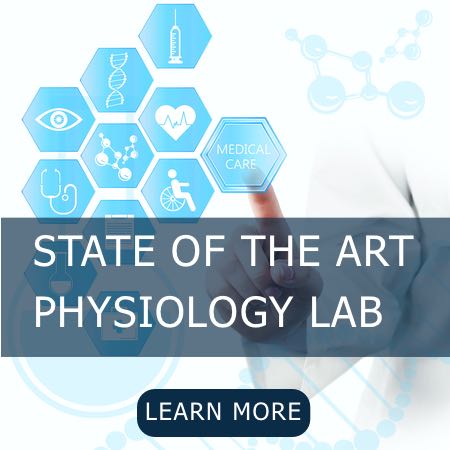DISEASES WE TREAT
We treat a variety of gastrointestinal conditions and diseases. If you are concerned about any symptoms you’re experiencing, the best thing to do is call us. We can help you figure out if an appointment is needed, and can easily schedule a time for you to come meet with either Dr. Mourani or Dr. Tarakji. The conditions below are ones we often see patients for:
IBS is a frustrating and chronic condition, which can cause constipation, bloat and/or diarrhea, along with other bothersome symptoms and often times varied food intolerances. While the causes of IBS are unknown, it can still be treated. Most people with IBS are able to control their symptoms through diet, stress management and, sometimes, medication prescribed by their doctors. Research is underway that may soon lead to new treatment options.
Food intolerances and food allergies are both caused by reactions to certain foods, however they are not the same. Food allergies can be triggered by even a small amount of the food and occur every time the food is consumed. People with food allergies are generally advised to avoid the offending foods completely. On the other hand, people with food intolerances may not have symptoms unless they eat a large portion of the food or eat it frequently. The best method for diagnosing true food allergy is to be assessed by an allergist.
The most common types of gas are belching and flatus. Belching is a normal reflex that allows the stomach to expel gas back up the esophagus, and flatus is the passage of gas from the lower bowel, which occurs typically 12-15 times daily. Sometimes people have trouble with excessive belching or abdominal discomfort related to gas. Certain types of foods, medications, or other medical conditions can contribute to excessive gas.
Iron deficiency anemia is a common type of anemia, a condition in which blood lacks adequate healthy red blood cells. Anemia happens for many reasons. Iron is a key ingredient needed to make hemoglobin, and a deficiency of iron will cause anemia. It can often be corrected with iron supplementation. However, sometimes additional tests or treatments for iron deficiency anemia are necessary, especially if your doctor suspects that you’re bleeding internally.
Inflammatory bowel disease (IBD) involves chronic inflammation of all or part of your digestive tract. IBD primarily includes ulcerative colitis and Crohn’s disease. Both can cause mild symptoms in many, but may also cause severe diarrhea, pain, bleeding, fatigue and weight loss in others. Your doctor will likely diagnose inflammatory bowel disease only after ruling out other possible causes for your signs and symptoms. While there is no cure for IBD, diet and lifestyle changes and drug therapy typically improve symptoms and lengthen the time between flare-ups.
GERD is caused by back-up of stomach juices into the esophagus. The most common symptom is burning and/or feeling of pressure in the chest spreading upwards toward the throat, called heartburn. Gastroesophageal reflux happens to most of us occasionally, but when it occurs often, causes symptoms that are bothersome or causes damage to the esophagus, it is the disease, GERD.
Most people have bacteria in the stomach, called H pylori. A small percent may get a disease or disorder from the condition. When H pylori is actually causing disease, some signs and symptoms may include an ache or burning pain in your abdomen, nausea, loss of appetite, frequent burping, bloating or unintentional weight loss. In most cases, H. pylori is acquired during childhood and in third world countries. Depending on your symptoms and individual circumstances, you may or may not benefit from treatment. It is best to consult with your doctor to decide if treatment makes sense for you.
Constipation can differ for every individual. It can become a problem if it’s chronic or causes pain. Identifying the cause of your constipation and finding an appropriate treatment option can alleviate constipation. It is important to contact your doctor if you are concerned.
Celiac disease is an autoimmune disorder of the small intestine that is estimated to affect 1 in 100 people worldwide. People with celiac disease cannot eat gluten, a protein found mainly in wheat, barley and rye–but may also be found in foods such as soy sauce and salad dressing. Digestive symptoms include diarrhea, weight loss, and constipation, but can vary enormously from person to person. Because the signs and symptoms are similar to other conditions, celiac disease can be difficult to diagnose. Fortunately, testing is available that can distinguish it from other disorders.
Diverticula is small out-pocketings of the lining of the colon that typically occur as we age. Having diverticula is the condition called diverticulosis, which in itself does not cause symptoms. However, diverticulosis can lead to a painful infection called diverticulitis if one these sacs rupture and releases bacteria into the colon.
Diverticulitis is a painful form of inflammation in the digestive tract. Diverticulosis is a condition in which pockets (or diverticula) occur in the wall of the colon. When these pockets become infected or inflamed, it is called diverticulitis. The most distinguishable symptom of diverticulitis is pain on the lower left side of the abdomen, which can occur suddenly or gradually. Most diverticulitis treatments work well, but once diverticula form they will be there for your entire lifetime. This means that you could acquire diverticulitis again at any time.


